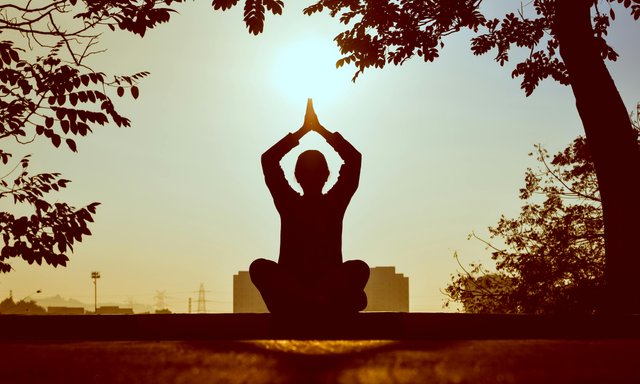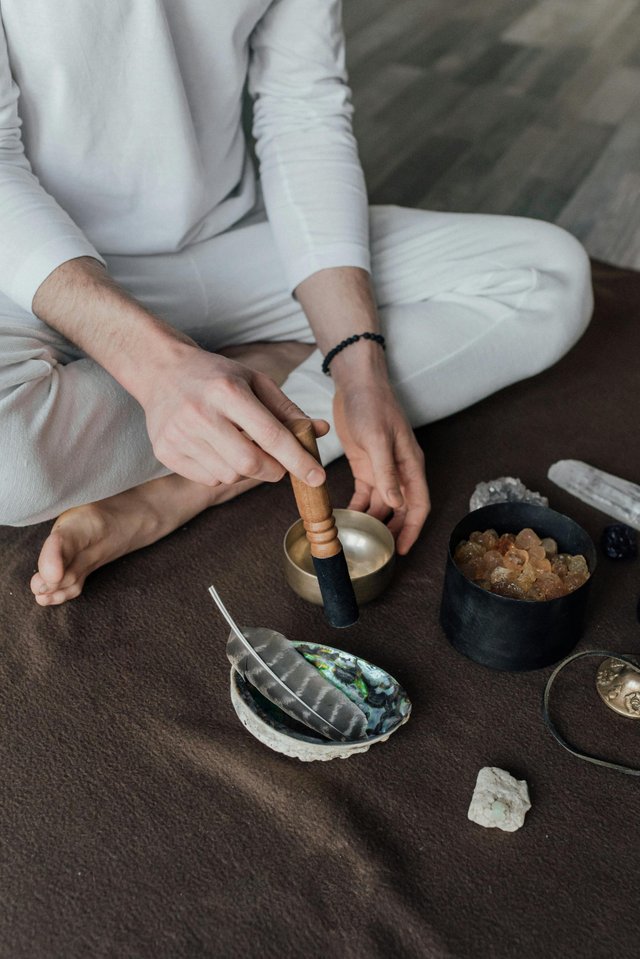
Looking to enhance your meditation practice and achieve deeper levels of focus and relaxation? Look no further! In this article, we will explore the secrets to performing better
https://billionairebrainwave.com/DSvsl/#aff=Davis01
meditation and unlock the amazing benefits it offers for your mind, body, and soul.
The Importance of Meditation
Meditation is a practice that has been around for centuries, and for good reason. It offers numerous benefits for our overall well-being and has been proven to reduce stress, improve mental clarity, and promote a sense of inner peace. In today's fast-paced and chaotic world, finding moments of stillness and tranquility is more important than ever.
By incorporating meditation into your daily routine, you can cultivate a deep connection with yourself and tap into your inner wisdom. It allows you to quiet the mind, let go of distractions, and focus on the present moment. Regular meditation practice can also enhance self-awareness, increase emotional intelligence, and foster a greater sense of compassion towards yourself and others.
Understanding the Basics of Meditation
Before diving into the techniques and strategies for performing better meditation, it's essential to understand the fundamental principles. Meditation is not about emptying the mind or achieving a state of complete thoughtlessness. Instead, it is about observing thoughts without judgment and cultivating a sense of inner stillness.
To begin your meditation practice, find a quiet and comfortable space where you won't be disturbed. Sit in a relaxed position, either cross-legged on the floor or on a comfortable chair. Close your eyes or soften your gaze, and bring your attention to your breath. Notice the sensation of the breath flowing in and out of your body, without trying to change or control it.
As thoughts arise, simply observe them without getting caught up in their content. Imagine your thoughts as clouds passing through a clear blue sky. Allow them to come and go, gently returning your focus to the breath whenever you find yourself getting carried away.
Benefits of Regular Meditation Practice
The benefits of regular meditation practice extend far beyond the meditation cushion. By dedicating even a few minutes each day to meditation, you can experience significant positive changes in various aspects of your life.
One of the most well-known benefits of meditation is stress reduction. Through mindfulness meditation, you can train your mind to become less reactive to stressful situations and develop a greater sense of calmness and resilience. Studies have shown that regular meditation can lower cortisol levels, decrease anxiety, and improve overall mental well-being.
In addition to stress reduction, meditation can also improve focus and concentration. By practicing mindfulness and bringing your attention to the present moment, you can train your mind to stay focused on the task at hand. This can be particularly beneficial for those who struggle with distractions or have demanding work environments.
Furthermore, regular meditation practice has been linked to improved emotional well-being. It can help regulate emotions, enhance self-awareness, and foster a positive outlook on life. By cultivating a sense of inner peace and gratitude through meditation, you can develop a greater sense of contentment and happiness.
How to Prepare for Meditation

Creating the right environment for meditation can greatly enhance your practice. Here are some tips to help you prepare for a successful meditation session:
Choose a quiet space: Find a location where you can meditate without being disturbed. It could be a dedicated room, a corner of your bedroom, or even a peaceful spot in nature. Ensure that the space is clean, clutter-free, and free from distractions.
Set the mood: Create a serene atmosphere by dimming the lights, lighting a candle, or playing soft instrumental music. Consider using essential oils or incense to create a calming scent in the room.
Get comfortable: Find a comfortable sitting position that allows you to remain alert and relaxed. You can sit on a cushion, a meditation bench, or even a chair. Ensure that your back is straight, and your body is relaxed.
Set a time limit: Decide on the duration of your meditation session beforehand. Start with shorter sessions, such as 5-10 minutes, and gradually increase the time as you become more comfortable with the practice.
Switch off devices: Eliminate any potential distractions by turning off your phone, computer, or any other electronic devices. This will allow you to fully immerse yourself in the meditation experience.
By taking the time to prepare your meditation space and create a peaceful ambiance, you can set the stage for a more focused and enjoyable meditation session.
Different Meditation Techniques
There are numerous meditation techniques you can explore to enhance your practice. Here are some popular ones:
Mindfulness meditation: This technique involves paying attention to the present moment and cultivating a non-judgmental awareness of your thoughts, feelings, and sensations. It can be done by focusing on the breath, body scan, or simply observing the flow of thoughts.
Loving-kindness meditation: Also known as Metta meditation, this practice involves generating feelings of love, kindness, and compassion towards yourself and others. It typically begins with directing loving-kindness towards yourself and gradually expanding it to include loved ones, acquaintances, and even difficult people.
Transcendental meditation: This technique involves the use of a mantra, a specific word or phrase repeated silently in the mind. The mantra acts as a focal point, allowing the mind to transcend surface-level thoughts and access deeper states of consciousness.
Visualization meditation: This practice involves using the power of imagination to create mental images that promote relaxation, healing, and self-improvement. It can be done by visualizing a peaceful nature scene, a desired outcome, or even picturing yourself surrounded by healing light.
Experiment with different techniques and find the one that resonates with you the most. Remember, there is no right or wrong way to meditate. The key is to find a technique that brings you joy, peace, and a sense of connection with yourself.
Tips for Maintaining Focus During Meditation
One of the biggest challenges in meditation is maintaining focus and preventing the mind from wandering. Here are some tips to help you stay centered during your practice:
Anchor your attention: Use an anchor, such as the breath, a mantra, or a specific sensation in the body, to bring your attention back whenever you notice it drifting away.
Be patient and gentle: Instead of getting frustrated with yourself for getting distracted, approach your thoughts with kindness and compassion. Acknowledge them without judgment and gently guide your focus back to the present moment.
Practice regularly: Consistency is key when it comes to meditation. Set aside a specific time each day to practice, even if it's just for a few minutes. By making meditation a habit, you train your mind to become more focused and present throughout the day.
Use guided meditations: If you find it difficult to meditate on your own, consider using guided meditations. There are plenty of resources available online or through meditation apps that can provide step-by-step instructions and gentle guidance. CHECKOUT OUR PRODUCT THAT TRANSFORM HOW YOU MEDITATE
https://billionairebrainwave.com/DSvsl/#aff=Davis01
Remember, meditation is a practice, and just like any other skill, it takes time and patience to develop. Be kind to yourself and trust that with regular practice, your ability to maintain focus will improve.
Overcoming Common Challenges in Meditation
While meditation offers numerous benefits, it can also present some challenges along the way. Here are a few common obstacles you may encounter and tips to overcome them:
Restlessness: If you find it hard to sit still during meditation, experiment with different sitting positions, such as using a meditation bench or sitting on a chair. You can also try walking meditation or incorporate gentle movement into your practice.
Sleepiness: If you tend to feel drowsy during meditation, try opening your eyes slightly or sitting in an upright position. You can also meditate during a time of the day when you feel more alert, such as in the morning.
Impatience: It's common to feel impatient or frustrated when the mind wanders during meditation. Instead of resisting or fighting these feelings, practice acceptance and gently bring your attention back to the present moment.
Self-judgment: It's natural for the mind to wander during meditation, and it's important not to judge yourself for it. Remember that meditation is a practice, and each session is an opportunity for growth and self-discovery.
By acknowledging and addressing these common challenges, you can navigate through them and continue to reap the benefits of meditation.
Creating a Meditation Routine
To fully experience the benefits of meditation, it's important to establish a consistent practice. Here are some tips for creating a meditation routine:
Start small: Begin with shorter meditation sessions, such as 5-10 minutes, and gradually increase the duration as you become more comfortable. It's better to have a short daily practice than sporadic longer sessions.
Be flexible: Find a time of the day that works best for you, whether it's in the morning, during lunch break, or before bedtime. Choose a time when you are less likely to be interrupted or distracted.
Integrate meditation into daily activities: Meditation doesn't have to be confined to a formal sitting practice. You can incorporate mindfulness into everyday activities such as walking, eating, or even doing household chores.
Accountability and support: Consider joining a meditation group or finding a meditation buddy to share your experiences and keep you motivated. Having a community can provide encouragement and accountability in maintaining your practice.
Remember, consistency is key when it comes to meditation. By making it a regular part of your routine, you can cultivate a deep sense of inner peace and tap into the transformative power of this ancient practice.
Resources for Guided Meditation
If you're new to meditation or prefer guidance during your practice, there are plenty of resources available to assist you. Here are some popular options:
Meditation apps: There are numerous apps available for smartphones that offer guided meditations for various purposes, such as relaxation, stress reduction, and sleep. Some popular ones include Headspace, Calm, and Insight Timer.
Online platforms: Websites like YouTube and SoundCloud offer a wide range of guided meditation recordings. You can search for specific topics or teachers that resonate with you and explore different styles of meditation.
Books and podcasts: Many renowned meditation teachers have written books or host podcasts that provide valuable insights and guided practices. Some notable authors include Eckhart Tolle, Sharon Salzberg, and Jon Kabat-Zinn.
Explore different resources and find the ones that resonate with you the most. Remember that meditation is a personal journey, and it's important to find teachers and practices that align with your unique needs and preferences.
https://billionairebrainwave.com/DSvsl/#aff=Davis01
Conclusion: Embracing a Lifelong Meditation Practice
In conclusion, meditation is a powerful tool for enhancing your overall well-being and living a more conscious and purposeful life. By understanding the basics, preparing your meditation space, exploring different techniques, and overcoming challenges, you can take your meditation practice to new heights.
Remember, meditation is not a destination but a lifelong journey. It's not about achieving a specific outcome or reaching a state of perfection. It's about showing up on the cushion, day after day, with a sense of curiosity, openness, and self-compassion.
So, embark on this journey of self-discovery, and embrace the incredible benefits that meditation has to offer. Whether you are a beginner or an experienced practitioner, the key is to approach your meditation practice with patience, consistency, and an open heart. May you find peace, clarity, and profound transformation along the WAY😊😊